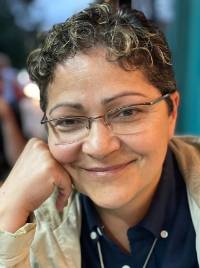Overview
Through the generous support of the Charles E. Scheidt Family Foundation, the Charles E. Scheidt Resident Practitioner Fellowship Program will bring up to two genocide and mass atrocity prevention practitioners to Binghamton University for a residential stay of one academic semester (mid-August through mid-December, or mid-January to mid-May). The program offers practitioners an opportunity to pause and reflect on their work, share their experience and expertise with faculty, academic staff and students at the Institute, instruct and learn from their academic colleagues, and collaborate on new projects with both academic and non-academic partners. Resident Practitioners may take full advantage of the welcoming and vibrant intellectual atmosphere of the institute to try out new ideas and initiatives, explore the scholarly literature associated with their work, attend regular lectures, visits from academic and non-academic peers, visit classes, and take part in the full range of informal intellectual interaction of the Institute and of Binghamton University.
Resident Practitioners are expected to offer at least one public presentation at Binghamton University during their residency; additional presentations in the broader community or on other campuses are encouraged. In addition, Resident Practitioners will make periodic visits to I-GMAP courses for more informal presentations and discussions of their work. Resident Practitioners will participate in regularly scheduled Institute events, including the annual Atrocity Intervention Simulation Exercise (normally every Fall semester) and the annual Frontiers of Prevention international conference (normally every Spring semester). Depending on qualifications and interest, Resident Practitioners may also explore the option of teaching (either independently or in partnership with an I-GMAP affiliated faculty) an academic course during their residency.
The Fellowship covers travel costs to and from Binghamton, NY, and provides a stipend to cover the costs of local housing, board, and related expenses. Fellows are provided with a workspace in the I-GMAP offices, administrative support, library and computing privileges, and a small stipend to offset the costs of professional travel during the residency.
2024-2025 Charles E. Scheidt Resident Practitioners
Shadi Amin

Shadi Amin won the 2022 International Lesbian Visibility Award and depicted as Hero of the Year in 2023 by L-MAG. She has been a media commentator on Iranian LGBTI+ issues to a wide range of international media outlets, such as the Guardian, the AP, and Pink News. Shadi is also a leading writer and researcher in her field and has authored and co-authored numerous authoritative books and articles.
Shadi’s selection and translation of Adrienne Rich and Audre Lorde’s articles, published in Ghodrat va Lezzat (Power and Joy, 2006), was one of the first among her literary works and one of the few resources available in Farsi on lesbian existence. She is also the co-writer of Crime and Impunity: Sexual Torture of Women in Islamic Prisons (2012). Another one of her publications is Gender X: a Farsi book written based on the findings of a three-year research about LGBTI individuals and the abuse of their rights in Iran. The English version of the report on this research is available under the title of Diagnosing Identities, Wounding Bodies.
Shadi has also taken the initiative to set up an alternative counseling e-system, which methodically informs, educates, supports and assists LGBTI Iranians. Through this effort, she is changing the status quo and creating opportunities for a better life for thousands of Iranian LGBTI at the grassroots level under the Islamic Republic regime in Iran — a government intent on denying LGBTI individuals’ very existence. Shadi works with UN Mechanisms such as the Fact Finding Mission on Iran, Treaty-bodies, special rapporteur and Universal Period Review to defend the rights of LGBTI people in one of the most stigmatized regions in the world.
Kai Mata

Kai Mata is an Indonesian Singer-Songwriter known for being Indonesia’s openly out lesbian musician.
When a video of her coming out as proud to be both “Indonesian and flaming gay” went viral on Twitter, it sparked national controversy and backlash, yet also propelled her voice to the international community, opening doors to international collaborations and worldwide media attention from the South China Morning Post, Pink News, The Guardian, and Buzzfeed News, to name a few.
She’s recorded with Grammy-Award winning musician Kipper Eldridge, performed across three continents, and continues to proudly represent LGBTQ+ Indonesians through painting musical stories of the queer experience.
